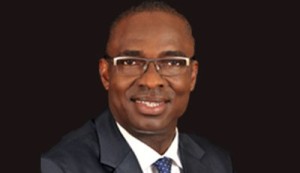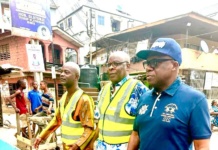The Aviation industry in Nigeria has been one critical area of public service whose commercialization has been plagued by fallible circumstances arising, not only from the government and policies put out but also from stakeholders and accidents of fate (if that will be admissible).
The industry that has gone through a myriad of policy shifts, re-organization, re-shuffles, management re-growth, and all sorts yet it has not satisfied the expected performance levels of all stakeholders. In fact, it has proved more than a balancing act challenging Charlie Chaplin to an order of disorders to serious for jokes and too flab for a garb.
However, despite the various attempts of past administrators, political and technical, the challenge has chiefly been to meet a compliance standard to assure safety, give value for money, prove vibrant as a foreign exchange earner to impact on viable and affordable costs for air travel locally and internationally, and a national pride capable of stimulating and reflecting the growth of the nation in the world market.
Against a backdrop of air accidents with fatal consequences, the rise and fall of domestic airline enterprises, and the challenges of administering a world rate air management system, the federal Government has included this industry as a core item of the transformation agenda policy. Reflecting the support of President Goodluck Jonathan, there has been a strong under-current of strategic re-positioning not only of human capital but also of focus and the deployment of resources.
It is these that have enabled the participation by appointment to a management role of Mr. Nnamdi Udoh whose experience in the aviation sector serving on the government side of the Aviation industry for over 30 years brings out the reconciliation of vision, history, vision, and technical best practices for the much desired lift to the next level.
Engneer Udoh was interviewed by Christy Anyanwu and these excerpts go to confirm the expected direction of government and the improvement required not necessarily by an over-haulage but by a careful understanding of the context of operations that requires the world to agree with us and recognize the standard and status of the Nigerian industry justifying that Nigeria be rated potentially as one of the best with a high safety record for commercial travel and for the military defence of her territorial integrity.
In what specific ways has NAMA benefited from the Transformation Agenda?
Firstly, NAMA itself is transforming in the way we do business. We are now able to offer seamless air traffic control service. We have transited to area radar control. This is the first time this happened the country. We are now vectoring aircraft on area radar control. This has made our air traffic management very seamless, save time for pilots, save fuel for airline owners and make life comfortable and seamless for the traffic controllers. That is transformation. Secondly, with what is going on in the airport development, we are experiencing a great deal of airport remodeling. The vision of the Honourable Minister of Aviation, Princess Stella Oduah is to ‘grow’ the airports in terms of the traveling environment and the traffic. So there is massive transformation going on in the aviation sector. Of course, there is the issue of bi-lateral air service agreement that has been decentralized. Several airlines want to come to Nigeria because they see the country as an attractive destination. Besides, we occupy a geographical position in West Africa that puts at an advantage in the sub-region.
Is NAMA now properly equipped to track all aircraft within Nigeria’s airspace?
I just talked about seamless airspace. By that I mean that NAMA is not only equipped with modern facilities, but it is also backed by well-trained personnel to track every aircraft that flies in our airspace. Yes, NAMA is well equipped to do discharge it mandate effectively.
Does Nigeria have the capacity to check breaches of its airspace?
What do you mean by breaching? With new radar we have now, no airplane will come into Nigeria’s airspace undetected. But in case of violation we will land you safely and of course the principles and procedures for dealing with violation of airspace will follow. But if you are talking in terms of external aggression, then that is an issue for the military. But you’ll be shocked that Nigeria has what it takes to contain and manage airspace traffic in terms of enemy invasion. Nigeria is a very wide country, but if you go to any airport and look around, you will see military installations. At every international airport in Nigeria, there are Airforce Commandants and they are not there to play. We have air-force men working in our control towers; so we are properly covered.
In what other ways are you effecting change as NAMA leader?
We have moved to boost our involvement in Public Private Initiatives. For instance, we are managing the Bonny Airport for the Nigeria Liquefied Natural Gas (NLNG) Limited. We are also managing air traffic services for Forcados, Escravos and in Warri, whereby we provide services for helicopter operations for the oil sector. We also deploy what we call ADS-B (Automatic Dependant Surveillance Broadcast) to enable us provide effective service for helicopters that fly low in the Niger Delta. That would be part of the surveillance technology that we want to deploy, because those small helicopters flying around need to be properly captured and vectored in the Niger Delta by an ADSB facility.
ume?
On a daily basis the air traffic is between 450 and 500. Even on the day of the recent strike, Nigeria never diverted any aircraft to any country. We still had 420 flights to Lagos and over 181 departures, 178 arrivals and 61 over flyers. Arrival passenger figure was 9,165 while departure figure stood at 10,003 passengers, making a total of 19,168 in Lagos sector alone. You will not call that a skeletal service as people may choose to see it. For us, it was just an aggression of normal disharmony in industrial environment, which of course we had to contend with and see it as something that can happen.
What is the status of your communication facilities?
If there is no robust communication, we cannot be do an Area Radar Air Traffic Control because it entails having a controller in Abuja talking to an aircraft overhead Abuja, overhead Port Harcourt. We now have effective communication in respect of the Total VHF (Very High Frequency) Radio coverage of Nigeria. It is an independent project that had to be done long after the TRACON was completed. So today, we have effective communication facilities for both terminal and area radar control.










